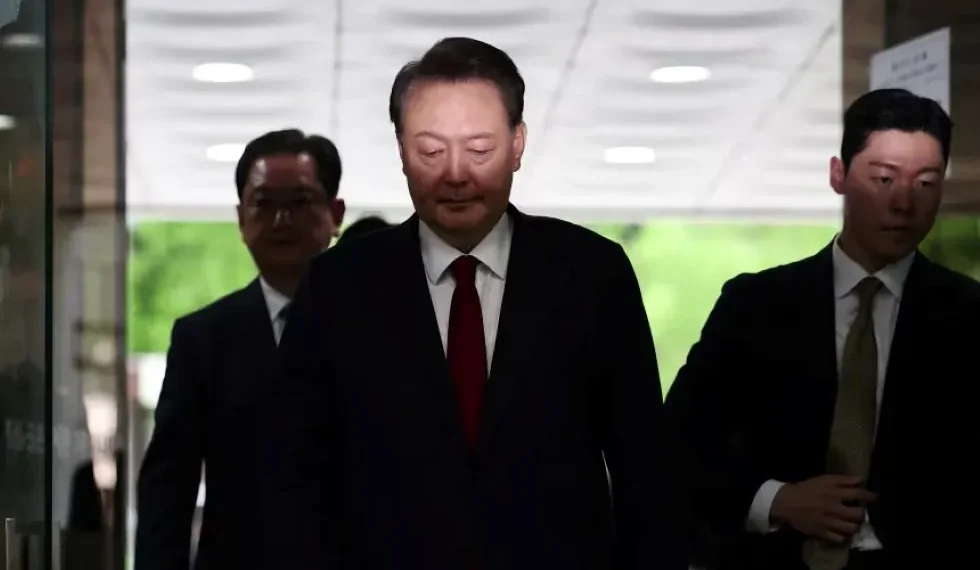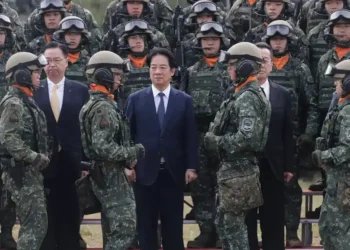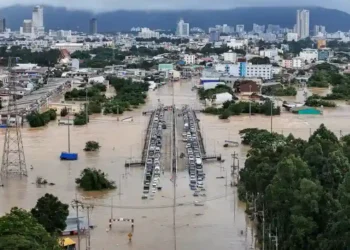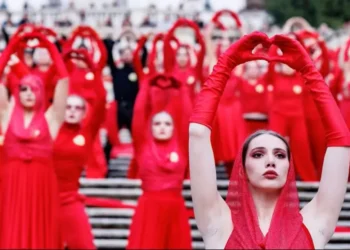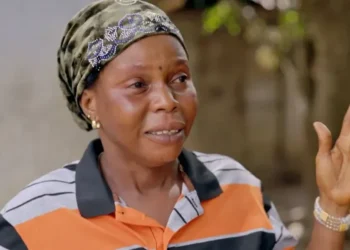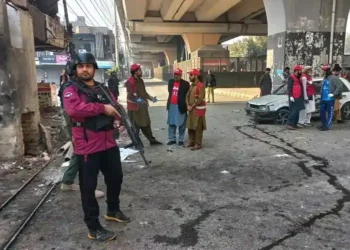SEOUL, South Korea — South Korea’s special prosecutor on Monday indicted former President Yoon Suk Yeol on fresh charges of abuse of power and aiding an enemy state, deepening the legal fallout from his controversial attempt to impose martial law last year.
According to the special prosecutor’s office, Yoon allegedly sought to provoke a military conflict with North Korea to justify his declaration of martial law — an act that prosecutors say was part of a broader conspiracy to cling to power amid domestic political turmoil.
Yoon, who was removed from office by the Constitutional Court in April, is already standing trial for insurrection tied to the same incident. If convicted, he could face the death penalty, a potential first for a former South Korean leader since the country’s democratization.
Prosecutors Cite Evidence of Planned Provocation
Prosecutor spokesperson Park Ji-young told reporters that investigators recovered messages from a senior military official’s mobile phone indicating possible plans to instigate hostilities with North Korea.
The messages allegedly included keywords such as “drones” and “surgical strike,” which prosecutors say referred to a covert military operation designed to incite retaliation from Pyongyang.
“The evidence suggests that former President Yoon sought to create conditions for military tension with North Korea as a pretext to enforce martial law,” Park said during a briefing.
Yoon has repeatedly denied any wrongdoing, insisting his martial law decree was a “defensive measure” meant to “protect democracy from anti-state forces and corruption within the opposition.”
High-Ranking Officials Also Indicted
Alongside Yoon, former Defense Minister Kim Yong-hyun and former Military Intelligence Chief Yeo In-hyung were also indicted on charges of aiding an enemy state and abuse of authority.
Prosecutors allege that the trio conspired to manipulate national security conditions by encouraging a North Korean attack or perceived threat, which would provide justification for the imposition of martial law in South Korea.
According to investigators, Yoon and his advisers ordered a covert drone mission into North Korean territory to raise tensions between the two Koreas. The operation allegedly involved drones scattering anti-Pyongyang leaflets over the North’s capital.
In October last year, North Korea accused the South of conducting such an operation and released photos of what it said were the remains of a crashed South Korean military drone.
At the time, Seoul’s military declined to confirm or deny the incident, citing national security. On Monday, a Defense Ministry official again refused to comment, saying only that “the matter is under investigation.”
Political Scandal Deepens
The scandal surrounding Yoon’s martial law attempt has gripped South Korea’s political landscape, reviving painful memories of the country’s authoritarian past. Yoon, a former prosecutor known for his hardline stance on national security, became the first South Korean president in decades to face removal from office over an alleged abuse of military power.
Prosecutors allege that Yoon’s decision to declare martial law was not a constitutional safeguard but a calculated political maneuver to suppress opposition lawmakers and maintain control of government institutions.
Yeo In-hyung, the former military intelligence chief, reportedly expressed “deep regret” for not resisting Yoon’s directive but maintained that he was following presidential orders. Prosecutors, however, dismissed his statements as “implausible excuses” inconsistent with the evidence recovered from his phone.
Historic Trial and Potential Consequences
Yoon’s ongoing insurrection trial has already drawn intense public scrutiny and polarized the nation. The new charges of aiding an enemy state add a grave dimension to the case, as they suggest deliberate actions that could have endangered South Korea’s national security.
If convicted on all counts, Yoon could face the death penalty or life imprisonment under South Korea’s National Security Act. Legal analysts say the prosecution’s case hinges on whether they can prove Yoon’s direct intent to provoke conflict rather than merely authorizing military preparedness.
The indictments come amid renewed calls for institutional reforms to prevent the misuse of national defense mechanisms for political purposes.
A Nation Watching Closely
Public opinion in South Korea remains sharply divided. Supporters of Yoon argue that the prosecution is politically motivated, calling the investigation a “witch hunt by his rivals.” Critics, however, say the evidence paints a picture of a leader willing to endanger peace for power.
“The Yoon case represents a pivotal test for South Korea’s democracy and its commitment to civilian control of the military,” said political analyst Lee Ji-hoon of Seoul National University. “How this trial unfolds will determine the boundaries of presidential authority in times of crisis.”
As the legal process continues, both domestic and international observers are watching closely — not only for its potential political repercussions but also for what it reveals about the balance between security and democracy in one of Asia’s most dynamic democracies.
This article was rewritten by JournosNews.com based on verified reporting from trusted sources. The content has been independently reviewed, fact-checked, and edited for accuracy, neutrality, tone, and global readability in accordance with Google News and AdSense standards.
All opinions, quotes, or statements from contributors, experts, or sourced organizations do not necessarily reflect the views of JournosNews.com. JournosNews.com maintains full editorial independence from any external funders, sponsors, or organizations.
Stay informed with JournosNews.com — your trusted source for verified global reporting and in-depth analysis. Follow us on Google News, BlueSky, and X for real-time updates.
